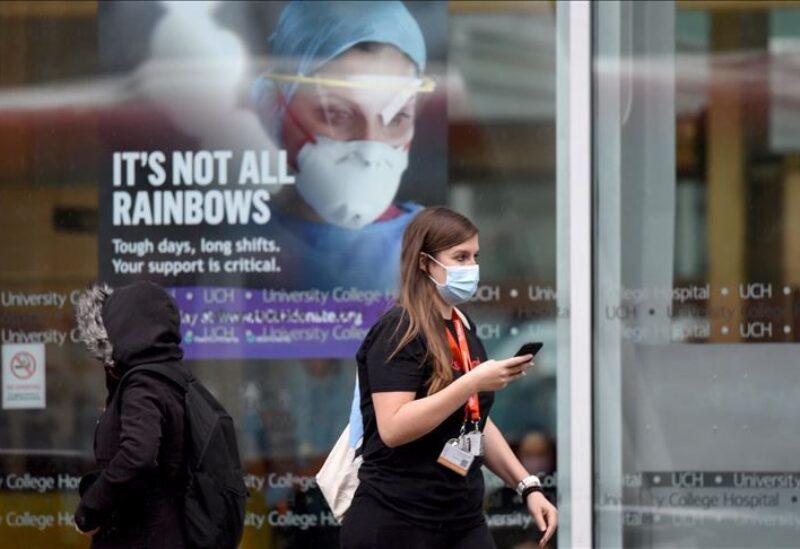
UK amid Covid-19
The UK government says it is keeping an eye on Covid data after preliminary research revealed that the Omicron type may cause less sickness than the Delta variant.
Scientists said the findings are encouraging, but warned that a large number of cases might still overload the NHS.
On Wednesday, the United Kingdom recorded more than 100,000 new daily infections for the first time.
New limits have been published in Wales and Northern Ireland, but no more restrictions have been revealed in England.
Boris Johnson has said that no modifications will be made before Christmas.
If no more adjustments are revealed after Christmas, England would be out of line with the rest of the UK, which have all announced further measures to take effect on Boxing Day.
The prime minister has warned that the variation is “spreading across the country quicker than anything we’ve seen previously.”
In an essay for the Sun, he warned people to take “extra special care” this Christmas to safeguard themselves and their family from Covid.
According to preliminary data from South Africa and studies from England and Scotland published on Wednesday, Omicron infections may be milder and result in fewer hospitalizations.
Researchers at Imperial College London discovered a 40 percent reduction in the risk of being admitted to hospital for a night or more when compared to Delta, while an Edinburgh University study found a 65 percent reduction in the risk of being hospitalized with Omicron – though it was based on only a few cases.
A research in South Africa found that Omicron patients were 70-80 percent less likely to require hospitalization. It did, however, imply that there was no change in outcomes for the few individuals who ended up in the hospital while taking Omicron.
Prof Neil Ferguson of Imperial College said the study was “obviously positive news to a degree.”
However, he cautioned that the drop was “insufficient to substantially affect the modeling,” and that the rate at which Omicron is spreading might still result un hospitalizations “in numbers that could put the NHS in a precarious situation.”
While the study found a moderate reduction in the likelihood of hospitalization due to the Omicron version, he stated that this looked “to be countered by the efficiency of vaccinations against infection.”
‘Serious worry’
Dr. Jim McMenamin, Public Health Scotland’s national Covid-19 incident director, called the University of Edinburgh’s results “a qualified good news story,” but cautioned that it was “essential we don’t get ahead of ourselves.”
He stated that a “lower proportion of a considerably larger number of cases” might nonetheless imply that a “significant” number of patients could get serious Covid infections, necessitating hospitalization.
Prof Azra Ghani, chair of infectious disease epidemiology at Imperial, advised that additional research on the effects of Omicron on the elderly was needed.
“Omicron has really been circulating in a younger population,” she told BBC Radio 4’s Today programme, “and I think the big concern is that over this Christmas period there’s going to be a lot more intergenerational mixing, and we don’t know yet what that severity pattern might look like in the oldest age groups.”
The UK Health Security Agency is likely to disclose early real-world data on Omicron soon, which might provide more information on the severity of the variant.
Nightclubs in Northern Ireland will have to close on Sunday, and more limitations, including a return to table-service only in hospitality facilities, will go into effect on Monday.
On Sunday, the rule of six will be reinstated at pubs, cinemas, and restaurants throughout Wales.
The number of military soldiers assisting the Welsh Ambulance Service will nearly double in the new year, with another 183 troops arriving on January 4th, bringing the total to over 400.
According to Judith Paget, the chief executive of NHS Wales, about a quarter of healthcare workers might be out of work during the peak of the Omicron wave.
From Sunday, the size of public meetings in Scotland will be limited for three weeks, and on Monday, new restrictions will be imposed on bars, restaurants, and other public interior places, including a one-metre spacing rule between groups and table service where alcohol is dispensed.
The booster program continues in the United Kingdom, with 968,665 doses administered on Tuesday. The UK government has continuously said that there is a race between the vaccine and the virus, and that by the end of the year, all people in England would be able to arrange a booster shot.
According to UK government vaccination advisors, vulnerable children aged five to eleven should be administered a low-dose Covid vaccine, and certain older children should also be offered a booster in response to Omicron. A decision on whether or not to proceed with these has yet to be taken.